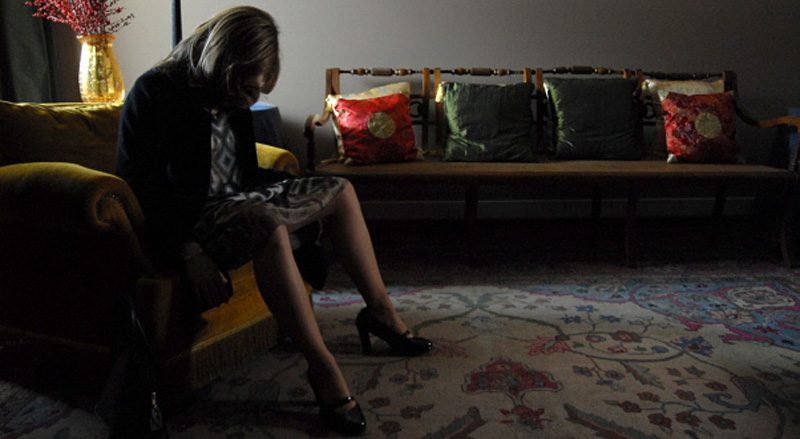Portuguese master Manoel de Oliveira, cinema’s only centenarian and an indefatigable bard of subtle, insidiously devastating irony, approaches Eccentricities at a slant. This short fable of sober disillusionment (adapted from a story by 19th-century realist Eça de Queiroz) is framed by a train journey in which broken Macário (Ricardo Trêpa) relates his personal tale of woe to de Oliveira regular Leonor Silveira, the hackneyed narrative device sarcastically reinvented by the actress’ sly reactions alone. Macário reveals himself to be the victim of Luisa (Catarina Wallerstein), a beautiful young woman wielding a Chinese fan and shooting seductive glances at our hero from opposite the bookkeeping office of his uncle’s (Diogo Dória) clothing store. This sets in motion a downward spiral of naive obsession, financial desperation (though the film updates Queiroz to reflect Europe’s current tenuous economy, Macário must archaically ask his uncle’s permission to marry, resulting in fiscal and moral straits), and betrayal, even as de Oliveira wisely clears his film of all melodramatic stumbling blocks. In signature style he casts an upper-class purgatory of harp-serenaded cocktail parties dryly askew, especially in rendering a 21st-century Lisbon as a hushed and crepuscular Renaissance-era capital in perfectly composed static shots. But rather than sink into museum-film tastefulness, Eccentricities‘ wistful resignation befits the gently harsh lesson delivered by Luis Miguel Cintra, reciting Fernando Pessoa: “All the woes of the world stem from our caring about each other.”
Eccentricities of a Blonde Hair Girl: Sober Disillusionment in Portugal




